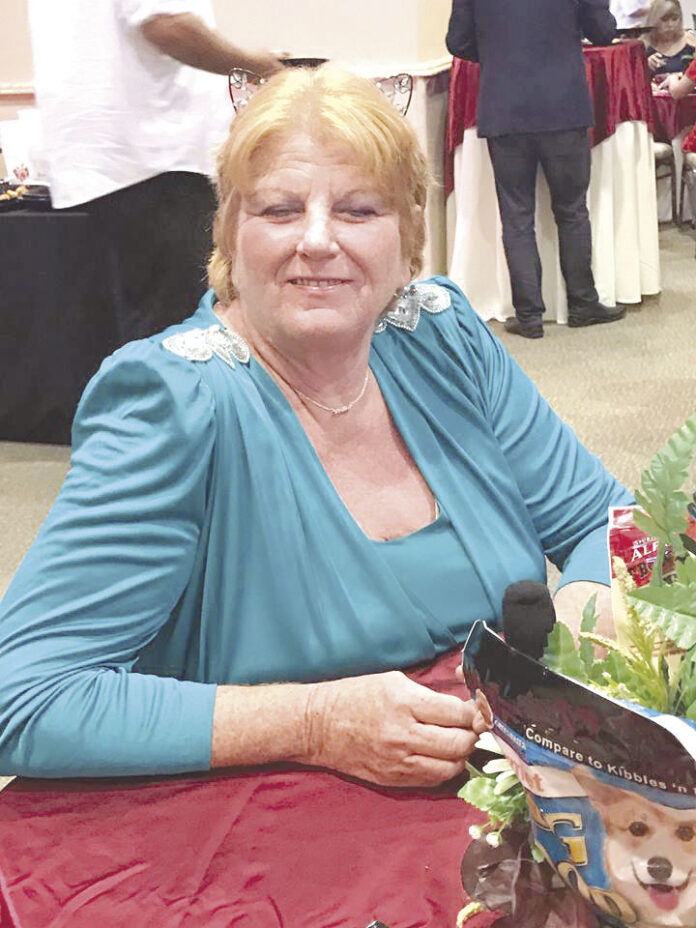HARLINGEN — The Humane Society appears to be moving in a new direction.
After more than 11 years, Pat Turman-White has resigned as its president, citing funding cuts leading to the halting of two programs aimed at saving stray animals’ lives.
Turman-White, who has served as the board’s president since 2006, “voluntarily resigned,” Executive Director Kim Warunek said yesterday.
“We appreciate her years of hard work and service to the Humane Society,” Warunek said. “She has voluntarily resigned from our board of directors and we wish her well in her future endeavors.”
Chandra Phillips, a teacher, is serving as interim president.
Turman-White, who led this year’s drive to raise money to pull the organization out of what was described as a financial crisis, said the halting of the programs that trap stray animals and transport others to out-of-state shelters, will lead to higher euthanasia rates.
“If I stayed with the board, all I’ll see are euthanasia rates going up and my blood pressure going up,” Turman-White said yesterday, referring to the halting of the two programs she helped launch during the past two years. “I cannot watch what’s about to happen,”
However, not all of Turman-White’s programs are being disbanded.
A new grant will actually help the organization resume subsidized spay and neutering services for residents living in neighboring cities as well as pet owners in Willacy County.
The agency’s new board of directors halted the programs as it searched for funding sources.
Warunek said she expects euthanasia rates to climb until the agency resumes all the programs.
“Everyone would like to save all the kitties and save all the dogs — that’s what we’re about,” she said. “But you’ve got to recognize this has a cost.”
Benefits of efforts
Turman-White said the two programs being placed on hold saved about 3,500 dogs and cats in the past 2½ years.
For most of the year, Turman-White worked to raise money after the organization’s cash reserve ran dry.
She said Operation Panda, which trapped stray cats and neutered those found healthy, depleted about $91,000 in reserves during a 2½-year period.
But Warunek said the program cost the organization even more.
Meanwhile, a program that transported dogs and cats to out-of-state shelters cost about $30,000 a year, Turman-White said.
“The amount of lives we saved is worth the money we spent,” she said.
But Warunek said the organization’s top concern remains keeping the shelter in operation.
“We, as an entity, have to make decisions to keep the shelter open,” Warunek said.
How we got here
After Turman-White announced the organization was “broke” in April, the Humane Society downscaled its program aimed at subsidizing spaying and neutering dogs and cats offered to low-income pet owners living in neighboring cities and Willacy County.
From May through September, she led a drive that raised $66,840 in donations and $29,831 in fundraisers.
Soon, a new $30,000 PetSmart grant will help the organization resume these subsidized services.
While the shelter had been charging pet owners outside Harlingen $85 to spay and neuter dogs and $55 for cats, soon the Humane Society will resume charging $20 for dogs and $10 for cats for those who meet low-income criteria.
Her legacy
Under her leadership, Turman-White said the shelter’s euthanasia rates have plunged from about 8,900 in 2007 to about 4,600 this year.
Now, Turman-White said she is launching a new program named Kitties of the Valley, a trapping operation based out of a seven-acre sanctuary aimed at saving stray cats.
“I’m moving forward with helping the cats in the area,” she said.
Operation Panda — Trapped stray cats, funded tests to determine cats’ health
Transport program — Transported dogs and cats to out-of-state shelters




